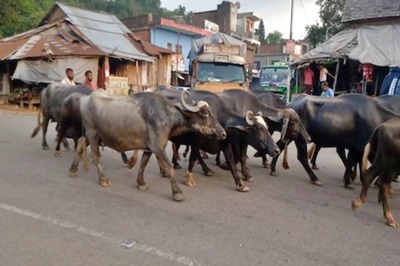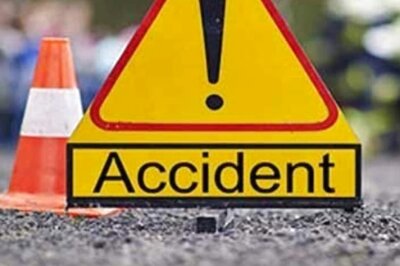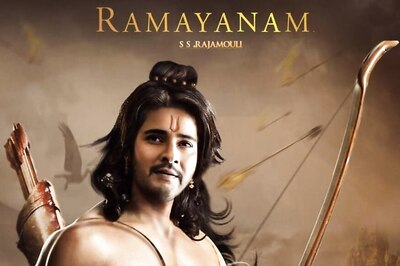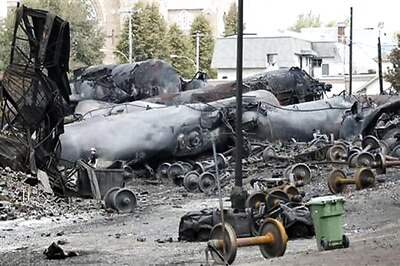
views
MINNEAPOLIS: Two more jurors were seated on Wednesday during the second day of jury selection in the trial of Derek Chauvin, the former policeman facing criminal charges for his role in the death of George Floyd during an arrest that caused an outcry around the world.
Judge Peter Cahill of the Hennepin County District Court has set aside three weeks to screen jurors, aware that most people have heard of Chauvin and even seen the bystander’s video showing him with his knee on the dying Floyd’s neck for nearly nine minutes.
Chauvin, who faces second-degree murder and manslaughter charges, has pleaded not guilty.
Three jurors were seated on Tuesday after saying they could put aside their misgivings about Chauvin: A white man who is a chemist at an environmental testing lab; a woman who appeared to be of mixed race who said she was “super excited” to serve on a jury; and a white man who works as an auditor.
The judge has promised all jurors anonymity for the duration of the trial. After questions from Chauvin’s lead lawyer, Eric Nelson and a prosecutor from the Minnesota attorney general’s office, a fourth juror was selected.
The man, who called himself a sales manager and appeared to be white and in his early 30s, said he tended to think police made more trustworthy witnesses than civilians and were more likely to testify based on facts rather than emotions. He also said that he had “strongly favorable” views of the Black Lives Matter movement.
“In my college years, I took a couple of great courses following the Civil Rights movement, and they really just led me on the path of racial injustice throughout our history,” he told the court. He said he was an avid sports fan and supported the right of Black football players to protest police brutality by kneeling during the national anthem before games.
Later, a Black man who said he immigrated to the United States 14 years ago to study in Nebraska and now worked in information technology told the court he believed that “all lives matter,” but that Black lives matter more because he thought Black people had been marginalized.
He also said he disagreed with calls by some activists to “defund the police,” saying that if police are expected to keep communities safe then “they have to have the right to have the funds.”
He became the fifth of the 12 jurors and up to four alternates the judge is seeking to seat.
LANDMARK CASE
The trial is seen as a landmark case about police violence against Black people in the United States, where police officers are rarely found to be criminally responsible for killing civilians.
Chauvin, 44, is white, and Floyd, who was being arrested on May 25 on suspicion of using a counterfeit $20 bill to buy cigarettes, was a 46-year-old Black man who grew up in Houston before moving to Minneapolis.
Prosecutors say Chauvin should face an additional charge of third-degree murder but Chauvin’s defense lawyers object, a dispute that is being hashed out in appeals courts while the district court presses ahead with jury selection.
Chauvin and the three other officers who made the arrest were fired from the Minneapolis Police Department the day after Floyd’s death, which was ruled a homicide by the medical examiner. Chauvin’s lawyers say he stuck to his police training and did not use excessive force. The three other former police officers involved are to go on trial later this year on charges of aiding and abetting Chauvin.
Chauvin was released from jail on a $1 million bond in October and is being tried in a courtroom in the Hennepin County Government Center, a tower in downtown Minneapolis now ringed with barbed-wire fencing and concrete barricades.
Disclaimer: This post has been auto-published from an agency feed without any modifications to the text and has not been reviewed by an editor
Read all the Latest News, Breaking News and Coronavirus News here




















Comments
0 comment